Pack light
This advice isn’t unique to Rick Steves, though it is no less important — especially if you aren’t a frequent traveler, the art of packing light is one that needs practice. If you’re able to bring only a carry-on bag, you won’t have to wait for your checked luggage, which means you can start your trip even sooner once you land.
“You’ll never meet a traveler who, after five trips, brags, ‘Every year, I pack heavier,'” Steves told Business Insider. “You can’t travel heavy, happy, and cheap. Pick two.” Steves’ advice is even more prevalent if you go somewhere like many cities in Europe that are loaded with stairs around every corner. That’s probably one of the myriad reasons why Steves’ European tours only allow travelers to have a carry-on bag.
Also, if you pack light and leave room in your bag, it gives you some parameters for spending money at your destination. If you have a ton of room between a carry-on and a checked bag, you’re more likely to overspend because you can. When you don’t have a lot of luggage space, you don’t have much choice unless you pay to ship it home.
Remember that time is money
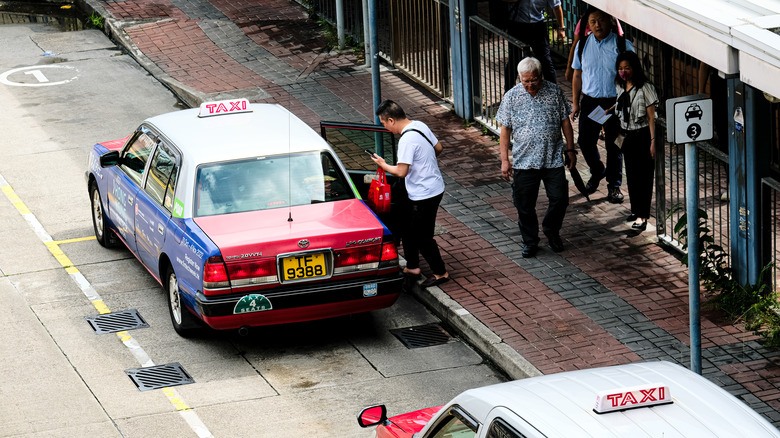
Budget travelers often butt up against the notion that saving a few dollars might cost them more time than spending the money. That’s why Rick Steves encourages you to consider how much your time is worth in those scenarios. “Shrink and tame big European cities by hopping into the occasional taxi or using a ride-sharing service,” Steves explains. “By knowing when a private ride is the best way to get somewhere, you’ll save time, money, and energy.”
There are a lot of times when a $15, 10-minute cab ride will save you ample time compared to the few dollars you’d save by taking a train or bus for 45 minutes. It’s important to acknowledge that the more time you spend trying to get places on your trip, the less time you can spend doing things you wanted to on your vacation. You can help offset that sticker shock by setting money aside ahead of your trip for unexpected travel fees.
Plan to avoid needless lines
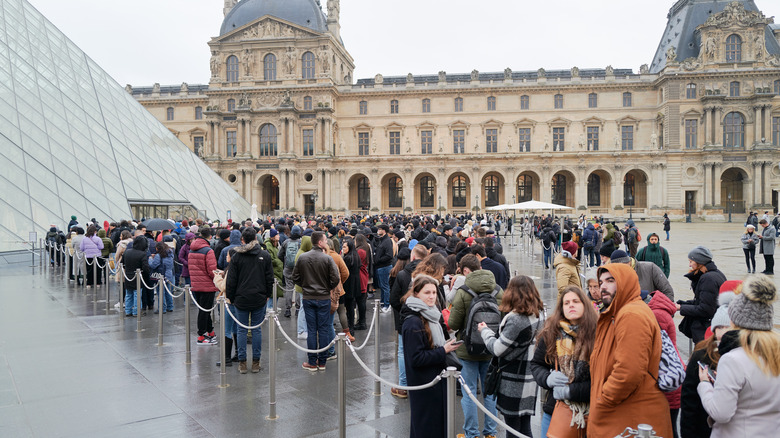
Pierre Crom/Getty Images
Avoiding lines is a two-fold scenario. The easiest way to free up your excursion time is by reserving tickets or entry times online ahead of your visit to a place like The Louvre or the Vatican Museums. When these kinds of tourist-heavy locations suggest getting tickets ahead of time, they mean it. Even with those recommendations in mind, you may be surprised how few people actually buy their tickets ahead of time or make attendance reservations.
“It’s not uncommon to find hour-or-more waits in ticket-buying lines and rooms packed shoulder-to-shoulder with visitors and intercontinental B.O,” Rick Steves explains. “So it’s up to smart tourists to do whatever is possible to minimize hassles and maximize their experience.” Even if you purchase tickets ahead of time, you may have to wait in a short advanced reservations line, though it’s nothing in comparison to the line of people who didn’t buy ahead of time.
Try local accommodations over familiar chains
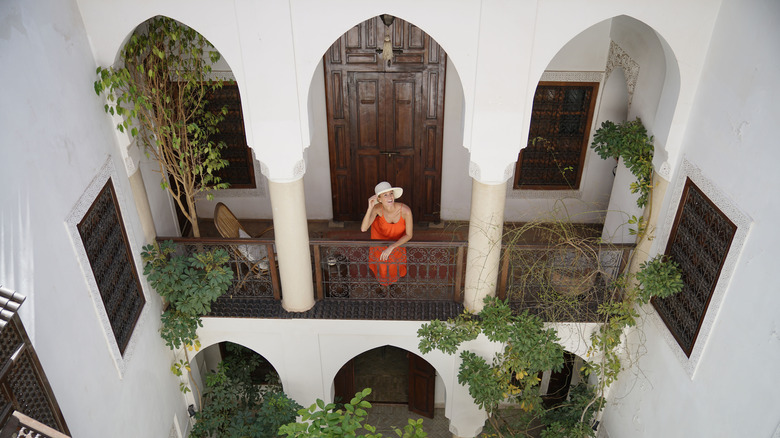
goodluz/Shutterstock
Opting for hostels or micro hotels isn’t the only way to save money on accommodations when traveling. If you decide to stay somewhere local over a major hotel chain you’re familiar with, you may save some money and get a better experience in the process. Non-American hotels outside of the United States are frequently more expensive than their local counterparts because a lot of American tourists would rather have familiarity than save money.
Going local over national is highly recommended by Rick Steves. “I look for places that are clean, central, relatively quiet at night, reasonably priced, friendly, small enough to have a hands-on owner and stable staff, run with a respect for local traditions, and not listed in other guidebooks,” Steves says. “If I can find a place with, say, six of these eight criteria, it’s a keeper.” Staying in a place that is more connected to the local culture and community is going to give you a more genuine experience of that location anyway, so you’re bound to leave with a deeper understanding of the place you’ve visited.
Look into less visited cities
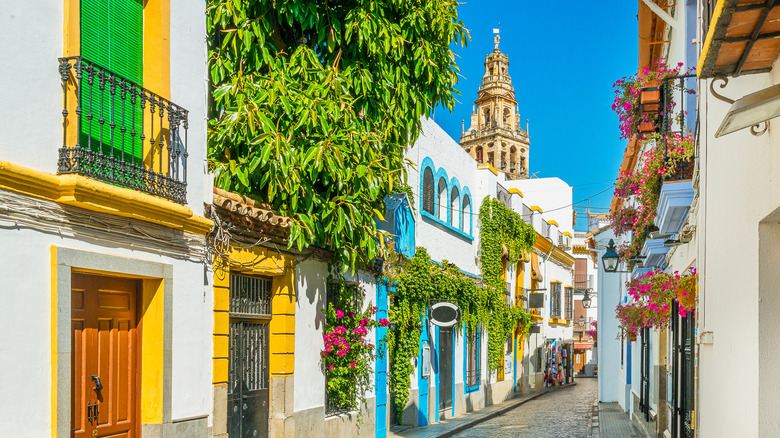
essevu/Shutterstock
There are cities that people wait their entire lives to visit, like Paris, London, or Rome. However, there are so many other cities in those countries that can showcase other sides of the place that could save you money and bumping elbows with millions of other tourists. Why not save some money seeing a gorgeous place like Oberammergau instead of just Berlin in Germany?
“One thing I would remind people of is that, a lot of times, second cities are a good idea,” Steves argued to the Seattle Times. “Everybody goes to ‘the first city’ of Seattle. Why not check out Tacoma? Everybody goes to Lisbon, why not check out Porto? Everybody goes to Madrid; why not check out Cordoba?” Steves’ point is that the larger cities aren’t more worthy of a visit than smaller ones. These “second cities” aren’t lesser than their larger counterparts; they’re simply either smaller, less heavily populated, or less touristed than the others.
Prioritize what you need to see or do
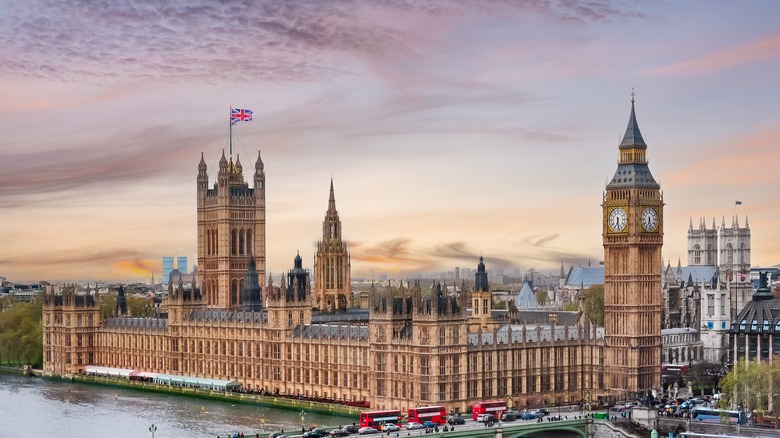
Mistervlad/Shutterstock
Particularly if you are visiting a massive metropolis, you are not going to be able to see everything the city has to offer in a single trip. Even if you plan out every single second of every day (which you shouldn’t do), you’ll run yourself ragged before you visit every museum, site, or restaurant on your list. Once you accept that fact and prioritize what you absolutely need to see or do, you can enjoy the adventure without regret — so says Rick Steves.
“You can’t see it all, especially in one trip, and that’s a blessing,” Steves told Business Insider. “Enjoy seeing what you can and be thankful you have important experiences left over to enjoy on your next adventure.” When you free up time in your schedule, you open yourself up to the idea that you can come back. If a place truly captures your heart, having a list of things you want to return to do will make the pain of saying goodbye for now a little less painful. Plus, it’ll encourage you to plan your next trip right away.
Embrace local cuisine

RossHelen/Shutterstock
From dining where the locals eat to understanding seasonal cuisine in your destination, eating well in any given destination takes several factors into consideration. One way to do that is by visiting restaurants that don’t translate the menu back to English, meaning they don’t specifically cater to mostly tourists. Another way is to see what’s on the menu itself beyond the text. Though specifically talking about Italy, Rick Steves’ cuisine advice works on a larger travel scale as well.
“I always like to say a good traveler can go to a good restaurant and look at the menu and know where they are and what month it is by what’s being served,” Steves told Eater. “They will eat the local specialties and they will eat them in season.” If a seasonal menu in Italy is full of root vegetables and tubers seasonally appropriate, you have a hint that the place will give you a more authentic experience.
When eating, make it a family affair

Carlo Prearo/Shutterstock
It can be difficult to decide what to eat when you’re trying to sample as much local cuisine as possible. That can be difficult at a restaurant, especially if you don’t eat a lot at meals or all at once. One workaround that Rick Steves suggests is eating family style and sharing food with your travel companion(s).
“Whenever possible, I order family style so I can eat my way through more of the menu,” Steves told USA Today. “Sometimes, rather than getting two main courses, my travel partner and I share a little buffet of appetizers or first courses — they’re filling, less expensive, and more typically local than entrees.” This tapas style of eating might be uncouth in some circumstances, but who cares? If you and your travel companion share similar tastes, it only makes sense to try a little of a lot rather than attempt to eat through a ton of food on your own. Besides, it’s also less wasteful since you aren’t ordering more than you can eat.
Don’t get distracted

Antonio Guillem/Shutterstock
This advice goes beyond not getting too distracted by your phone or social media-worthy photos to experience a place truly. This is about safety. Even some of the best-traveled people, like Rick Steves, are not immune to the occasional pickpocket. Whether successful or not, pickpockets target heavily touristed areas in part because of the constant chaos, crowd, and easily distracted travelers.
“Tourist attractions (especially ones that are free to see and are out in the open) and places for transportation tend to be targeted more,” Steves told Inc. “Places like parks and national monuments, subways/metros or train stations, and even churches may be targets. Once, one person who was traveling in my group had her stuff stolen during Palm Sunday mass in Germany.” Do yourself a favor, keep your phone close to your body, don’t constantly look down, and be aware of your surroundings at all times.
Allow room for spontaneity

South_agency/Getty Images
Even for the most rigid travel planners, you need to give yourself a little room for joyful surprises. If you don’t over-plan your entire trip, you won’t be stressed out, and you’ll have time for spontaneity — which could lead to your favorite memories of the adventure. That’s why one of Rick Steves’ biggest pieces of advice is to leave space in your trip open for the unexpected.
“If a serendipitous opportunity presents itself, the answer has always got to be ‘yes,'” he stated to Travel+Leisure. “…[Overplanning] takes away some of the joy of travel, which is letting things unfold in an unpredictable way.” Without planned breaks in your itinerary, you’re closing yourself off from random happenstances that could completely change your life. Take this writer’s advice on this one, having been forgotten by a tour company in Ireland. Instead of going back to the hotel, they hopped onto a different bus tour that offered their two available spots. That ended up being one of the best memories of that Ireland trip.

